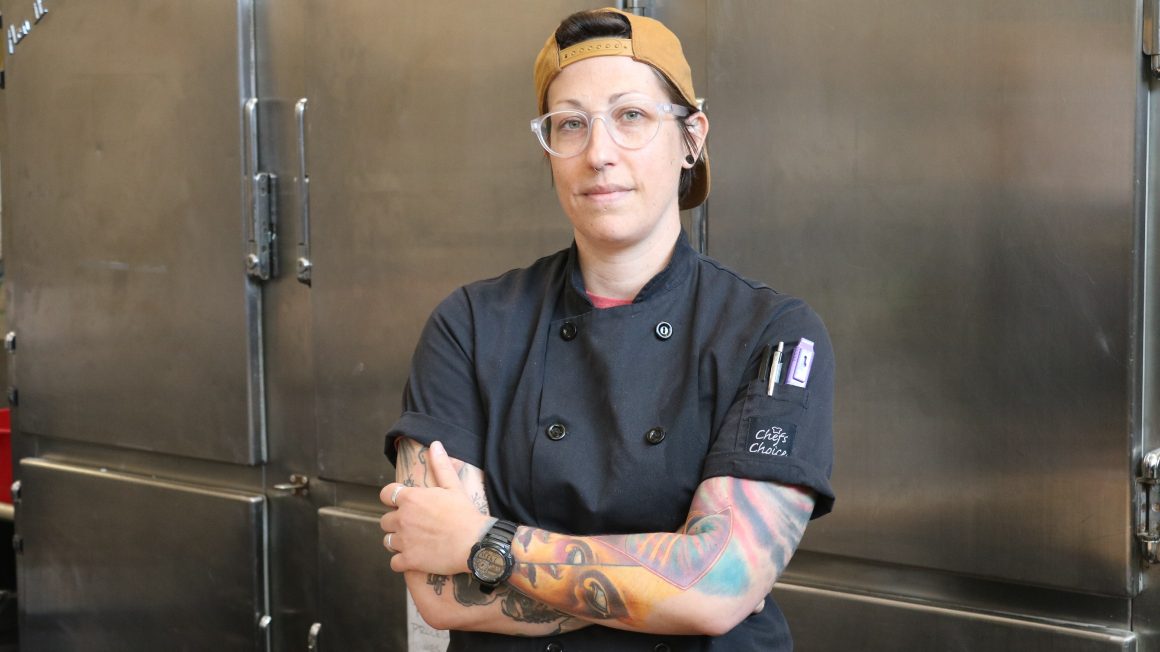Plant-based dining options are arriving at The University of Winnipeg this fall.
This initiative really is brought to us by students, faculty, and staff who have voiced their desire to have a dedicated plant-based kitchen on campus.
Ian Vickers, Chief Operating Officer
Diversity Food Services will be introducing a completely plant-based menu at Sprout – formerly known as The MALECÓN – on the fourth floor of Centennial Hall. Forward Food, which is a program of Humane Society International/Canada, worked with Diversity to develop the sustainable, meat-free, plant-forward dining options.
As a multi-faceted food service company that values sustainability, community, and local economic development, Diversity’s Executive Chef Jessica Young says this new addition just made sense.
“It’s important for us as a company to offer a plant-based menu,” they said. “Diversity is in our name, so we have always aimed to be as diverse as possible.”
There will be many new additions to the menu, but one that excites Young the most is the rice bowl and salad bar.
By giving students the chance to make their own food decisions, they hope they can accommodate all students, regardless of their background, religion, and eating habits.
“This initiative really is brought to us by students, faculty, and staff who have voiced their desire to have a dedicated plant-based kitchen on campus,” said Ian Vickers, Diversity’s Chief Operating Officer.
Promoting sustainability
Another reason for Diversity’s move to the fully plant-based menu is their commitment to the environment.
Last year, UWinnipeg was once again the highest scoring Canadian campus in the food and dining category of the Association for the Advancement of Sustainability in Higher Education’s (AASHE) annual Sustainable Campus Index, all thanks to Diversity.
UWinnipeg scored 89 per cent on last year’s AASHE Index, matching their 2020 score. Scoring is based on meatless dining and sustainable food and beverage purchasing and practices. The next closest university in the rankings was almost 20 percentage points behind at 70.6 per cent.
“A plant-based menu reduces our environmental footprint,” Young said. “We already make most things in house and doing plant-based items is kind of a no brainer for what we already have available.”
“I also think it’s great to reduce the stigma around plant-based diets.”
This initiative also hits the major key points in UWinnipeg’s institutional sustainability strategy, which focuses on maximizing the environmental and social benefit of purchases wherever possible by working with local suppliers and socially-minded businesses.
“The University of Winnipeg is strongly committed to fostering good relationships with people and ecosystems through all of our operational decisions. This is especially important when it comes to the food we provide on campus,” said Joseph Wasylycia-Leis, Campus Sustainability Coordinator. “We know that meat production is one of the biggest contributors to greenhouse gas emissions, so we have a responsibility to promote plant-based alternatives. Focusing on plant-based options reduces our carbon footprint, supports local producers, and provides students with healthy meal choices.”





